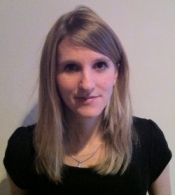Crossing borders - family unification and citizenship in Denmark
Today’s Europe is marked by increasing mobility of persons across political boundaries. Migrants from all over the world arrive in search of refuge, work, adventure, or family life. At the same time, EU integration has made it easier for citizens to move and settle anywhere in the European Union. In my PhD I explore what this might mean for rights, membership and sense of belonging. Drawing on contemporary political theories of deliberative and agonistic democracy I seek to contribute to our understanding of citizenship in a Europe with ‘porous borders’.
I do so through an in-depth qualitative empirical study of the contest over family unification, migration, and citizenship in Denmark. In the past decade Danish governments have tightened the rules of marriage migration making it very difficult for Danish citizens and residents to settle in Denmark with a foreign spouse. Some have responded by voicing their grievances. Others have moved across the bridge to Sweden. As EU citizens living in another EU country they are entitled to extensive protections of family life and can later return to Denmark with their partner, thus circumventing Danish regulation.
The thesis explores these strategies of ‘voice’ and ‘exit’ and their interplay. I have carried out 30 narrative and semi-structured interviews with couples, most of whom have moved across the border. The aim is to investigate how civic rights are claimed, denied and re-interpreted and how membership and belonging are contested by citizens, migrants, the state, and the EU. In this way I examine how the crossing of borders can be a way of practicing transnational citizenship.
Research interests
Citizenship, Migration, Mobility, Family unification, European Union, Borders, Political theory, Agonistic democracy, Deliberative democracy
Supervisors
Anne Phillips and Jonathan White
